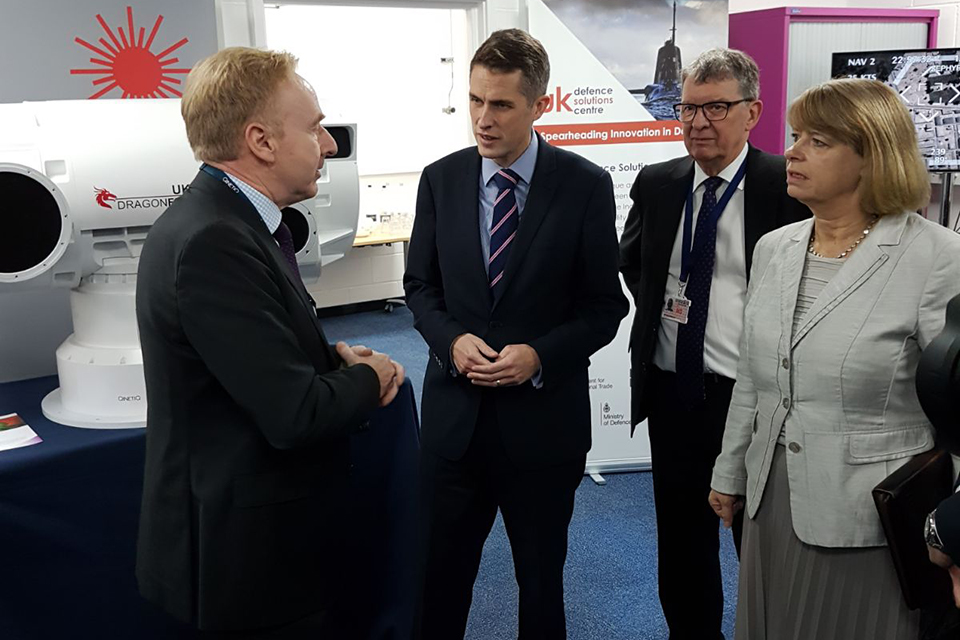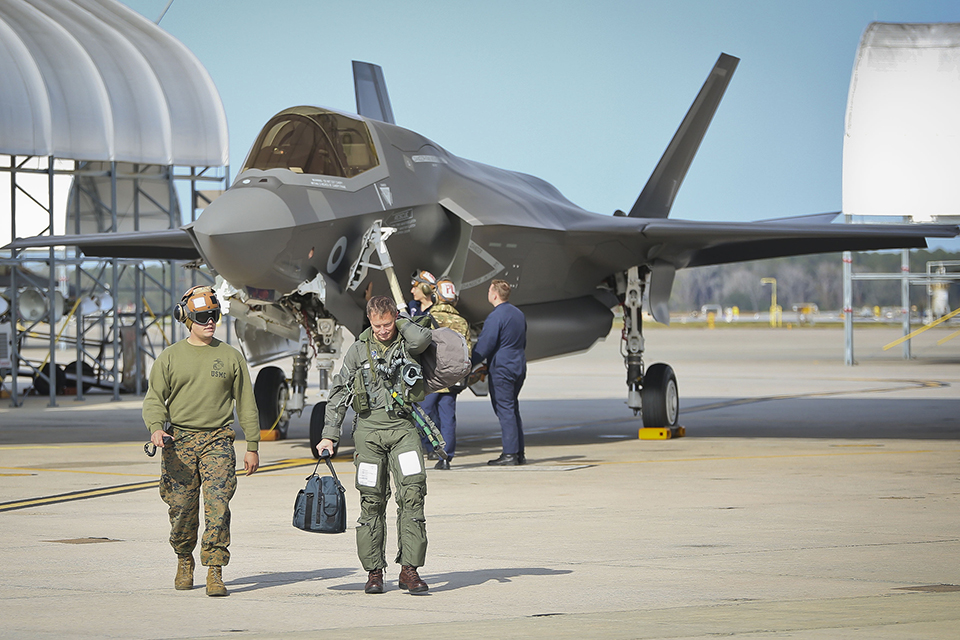News story: Export and SME support leads policy refresh which will keep our industry and military as ‘the envy of the world’, Defence Secretary announces
The update is primarily focused on: considering the wider economic, international and security implications of defence programmes at an earlier stage, creating the conditions for the industry to be internationally competitive, innovative and secure, as well as continuing to make it easier to do business with defence, especially for small and medium-sized enterprises (SMEs).
As UK industry’s single largest customer, spending £18.7bn of the rising defence budget with British companies last year and directly supporting over 121,000 jobs right across the country, the Defence Secretary outlined the importance of the partnership to both the industry and the security of the country in light of the refresh.
Defence Secretary Gavin Williamson said:
As Britain faces intensifying threats, it is crucial that our brave Armed Forces personnel have the warships, jets and missiles they need to defend the country.
British businesses play a vital role in equipping our troops with the tools they need to keep us safe.
We are British industry’s biggest customer and we are committed to exporters and small and medium sized businesses to ensure they and our military remains the envy of the world.
The Policy is based on three key-strands. The first focuses on improving the way defence delivers wider economic and international value, as well as national security objectives. To kick-start this, the department will pilot a new approach to analyse potential ways of delivering these benefits, setting evidence-based objectives for higher-value business cases.
The second strand aims to help UK industry to be internationally competitive, innovative and secure. The MOD continually bangs the drum for Britain’s world-leading industry around the world, with the Defence Secretary in Qatar earlier this month to agree the biggest export deal for the Typhoon aircraft of the decade, worth around £6bn. Prior to that deal, the UK won defence orders worth £5.9bn last year, equating to a 9% share of the global export market.
The National Shipbuilding Strategy launched earlier this year also focused heavily on export potential, with the new Type 31e class of frigate set to be designed to not only meet the needs of the Royal Navy, but also for the export market in mind right from the beginning. As part of those plans, the Government committed to working closely with industry to provide the certainty and support the need to become internationally competitive, and that early focus on exports will trail blaze the way for other big defence projects following the refresh.
For the first time the department is introducing a framework for standardised intellectual property arrangements for contracts co-funded by the MOD and industry, which were previously dealt with on a case-by-case basis. The department has been consulting with industry on new contract conditions allowing for more open support contracts to competition.
And that also relates to the third stand of the policy: making it easier for companies to do business with defence. This is particularly aimed at innovators, small and medium-sized enterprises (SMEs) and non-traditional defence suppliers.
The MOD has already made strides in this area, which has seen the department’s direct spend with smaller businesses increase by over 10%. The MOD has launched a Supplier Portal, bringing together for the first time a range of useful information for new and prospective suppliers in one place.
A new Twitter channel, @defenceproc, is also being used to provide regular updates to suppliers on opportunities and events that the MOD is supporting, whilst the department also launched two simplified, plain English short-form contracts for use in lower value less complex procurements last year, reducing the existing baseline terms and conditions from 18 pages to three.
An appropriate venue for the launch, the UK Defence Solutions Centre is making it easier for British firms of all sizes to do international business, boosting their exports, the national prosperity and global security. An innovation showcase at the event saw various businesses exhibit their defence solutions, including:
-
Social Network Analysis, Counting Labs: Real time, rapid response software system to inform automatically about emergency events from social media by automatically assessing the veracity of associated rumours.
-
Ultra-lightweight optics, Glyndwr: Low size, weight and power optics for high altitude pseudo satellite and small satellite applications.
-
Infrared Solutions, Amethyst: High performance infrared detectors for the stand-off detection of explosives and chemical agents.
-
Oxbotica: Autonomous vehicle technology for last mile resupply.

The Industrial Policy refresh follows a commitment made in the Strategic Defence and Security Review of 2015 and is closely allied with the Government’s wider Industrial Strategy which was launched last month. That strategy sets out a long term plan to boost the productivity and earning power of people throughout the UK.
ADS Chief Executive Paul Everitt said:
The UK’s defence industry makes a vital contribution to both our national security and our economic prosperity. The industrial policy refresh set out by the Defence Secretary today makes positive steps that can develop and strengthen the important partnership between government and the industry.
Defence companies across the UK will welcome the Government’s commitment to earlier consideration of the economic impact of defence programmes, support for UK defence exports and innovation, and measures to make it easier for small companies to access defence contracts.
Defence Growth Partnership Co-Chair Allan Cook said:
I am delighted the Secretary of State for Defence has chosen to launch the Government’s defence industrial policy refresh at the UK Defence Solutions Centre (DSC). He has seen how the DSC is helping to facilitate innovation and develop new capabilities for the defence industry in the UK, and for our international partners.
The Defence Growth Partnership (DGP) has made tremendous progress since its launch and we are looking forward to continuing to work more closely with our colleagues at the Ministry of Defence, the Department for Business, Energy and Industrial Strategy, and the Department for International Trade to support UK prosperity and our national security.
